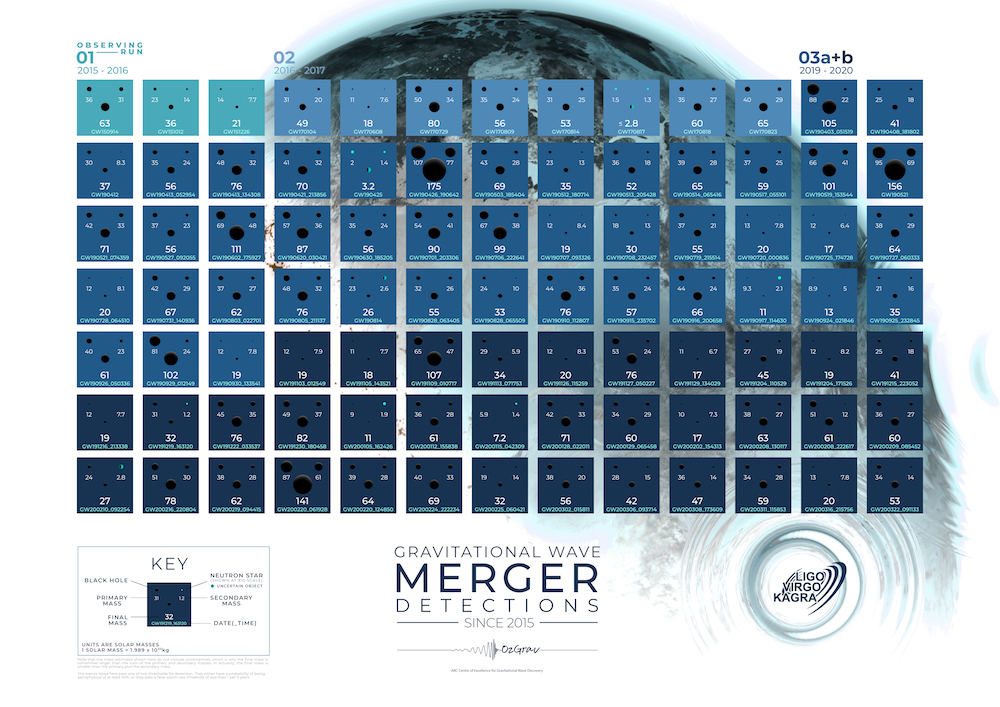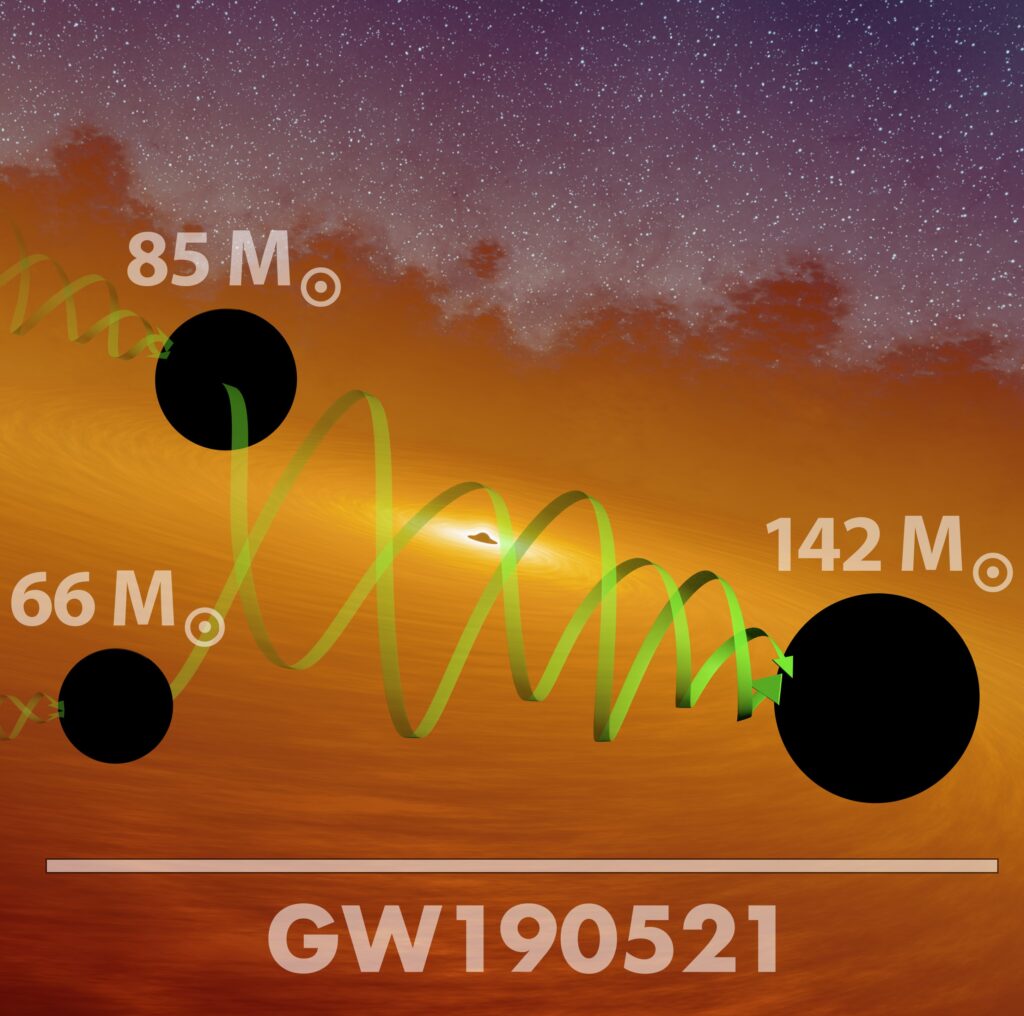Gravitational Waves
Gravitational Waves
Gravitational waves are perturbations that propagate like ripples in space-time fabric. They will not only allow us to test the predictions of General Relativity in regions of strong gravity, but will also serve as a tool to expand our understanding of the Universe. Direct observations of gravitational waves are being pursued by an international network of advanced (second generation) laser interferometric detectors. Presently a significant amount of effort is being devoted by this research community in developing algorithms and data analysis pipelines to efficiently search for gravitational wave signals in noisy data. Compact binary coalescences are interesting as sources of gravitational waves because their rates are expected to be favorable and their phases can be modeled to a very high accuracy, so that matched filtering can be used to search for them.

Image credit: Carl Knox, Hannah Middleton, LIGO_Virgo_KAGRA.
The detection of gravitational waves from binary neutron star mergers, in coincidence with multi-wavelength electromagnetic observations, has opened up a new era of multi-messenger astronomy. Together they allow us to probe the interior composition of neutron stars, and in turn to study the properties of dense nuclear matter under extreme conditions that are otherwise inaccessible to terrestrial experiments. Not only binary mergers, isolated neutron stars too can undergo oscillations when perturbed, which emit continuous gravitational waves. Such oscillation modes have also been conjectured to be excited in the post-merger ringdown phase of binary coalescence, and could also influence their tidal coupling. The oscillation frequency and damping times of such stellar oscillation modes, obtained from gravitational wave signals, depend on the internal composition of neutron stars and will allow us to constrain the nature of dense matter.
Gravitational waves, however, can probe a much wider range of known and (so far) unknown sources, where the phase evolution in most of cases is unmodeled or ill-modeled. A Stochastic Gravitational Wave Background (SGWB) is one of such source, which can be created by overlapping GW signals from unresolved astrophysical sources in the nearby anisotropic universe. A weaker isotropic SGWB is also expected from GWs produced in the early universe. Gravitational wave researchers in IUCAA work on astrophysical and cosmological aspects of both types of sources and on devising methods for detecting them.

